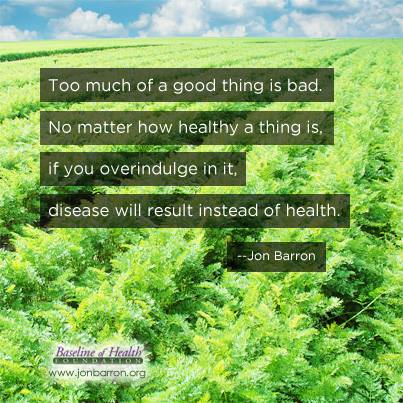In this blog, we usually admonish readers to get off their duffs and don some running shoes. The majority of people don’t exercise enough to even meet the paltry standards established by our health agencies. But not everybody tends toward couch potato. In fact, some people partake in so much fitness and exercise that, according to studies, they might actually be risking their health.
There’s plenty of anecdotal evidence that participating
in repeated endurance events can cause health–and particularly cardiac– problems. And the evidence for heart health concerns keeps building. For instance, a recent study published in the European Heart Journal followed 53,000 athletes who participated in a difficult 56-mile cross-country ski marathon called the Vasaloppet. Follow-up data indicated that participants ended up with a higher risk for cardiac difficulties compared to non-competitors. In fact, the faster the participants finished the race, the greater the likelihood that they would be hospitalized for heart arrhythmia within 10 years.1 Reynolds, Gretchen. “Can You Get Too Much Exercise?” 24 July 2013. New York Times. 12 September 2013. http://well.blogs.nytimes.com/2013/07/24/can-you-get-too-much-exercise/ The more often participants completed this annual race, the greater the risk.
A report in the Mayo Clinic Proceedings last year also issued a cautionary note.2 Moyer, Christine. “Too much endurance running, cycling, may weaken the heart.” 18 June 2012. American Medical News. 12 September 2013. http://www.amednews.com/article/20120618/health/306189949/4/ The report reviewed about 50 studies completed over a 10-year span focusing on the health effects on endurance athletics. The findings indicated that marathon runners had higher rates of cardiac disease than non-runners. Overall, endurance athletes had up to a fivefold increase in atrial fibrillation, the most common type of arrhythmia. Another study found that 12 percent of marathon runners had myocardial scarring, and that marathon runners had significantly higher rates of coronary disease compared to runners who did shorter distances. Rat studies earlier this year likewise found that excessive exercise leads to permanent atrial fibrillation.3 Guasch, E. et al. “Atrial fibrillation promotion by endurance exercise: demonstration and mechanistic exploration in an animal model.” 2 July 2013. NCBI Resources. 12 September 2013. http://www.ncbi.nlm.nih.gov/pubmed/23583240 And other studies have found a link between arterial plaque build-up and excess exercise.4 Helliker, Kevin. “The Exercise Equivalent of a Cheeseburger?” 24 May 2013. The Wall Street Journal. 12 September 2013. http://online.wsj.com/article/SB10001424127887323975004578501150442565788.html
Results like these led a Wall Street Journal article to comment that “The line [has begun] to blur between the health effects of running marathons and eating cheeseburgers.” Experts think such problems occur because endurance sports trigger changes in the heart, and the repeated stress exerted by those changes can create scar tissue, arrhythmias, and structural damage. In fact, right after completing an endurance event, the heart tends to show some of the same biomarkers that would be present in a person who suffered a heart attack.5 Burfoot, Amby. “Q & A With the ‘Potential Adverse Effects of Endurance Exercise’ Authors.” 14 June 2012. Runners World. http://www.runnersworld.com/running-tips/qa-with-the-potential-adverse-effects-of-endurance-exercise-authors?page=single Those biomarkers normally recede in a few weeks, but scientists are continuing to research if some collateral damage remains, particularly when a person continues to participate in endurance sports.
 At what point does exercise stop being beneficial and actually cause harm? Scientists point out that not everyone will necessarily suffer damage from participating in one or even a series of endurance events. According to cardiologist Dr. Chip Lavie, coauthor of several reports on the health effects of long-distance running events, “We can’t pick one [danger] point for everyone, be it 10 miles a week, or 15 or 20 or 25. For some people, running a half-marathon is harder than a marathon is for others. A marathon might not be very hard if you’re well trained for it. But as a general point, if you exercise hard for 3, 4, or 5 hours, a number of people may have adverse effects.”
At what point does exercise stop being beneficial and actually cause harm? Scientists point out that not everyone will necessarily suffer damage from participating in one or even a series of endurance events. According to cardiologist Dr. Chip Lavie, coauthor of several reports on the health effects of long-distance running events, “We can’t pick one [danger] point for everyone, be it 10 miles a week, or 15 or 20 or 25. For some people, running a half-marathon is harder than a marathon is for others. A marathon might not be very hard if you’re well trained for it. But as a general point, if you exercise hard for 3, 4, or 5 hours, a number of people may have adverse effects.”
But don’t overreact. The experts still make it perfectly clear that the danger of not exercising or under-exercising is a far more pressing issue. We’ve written many times in this blog about the benefits of exercise–and the damage done from lack thereof. You have to really push the limits to do the kind of damage described above. For instance, if you’re a runner and are worried that you’re damaging your heart by pounding the pavement, take note that a study of 52,656 adults 20 and older conducted over a 15-yer period found that runners have a 19% lower risk of mortality from all causes compared with non-runners. The runners in that study, though, ran only two to five times a week, and went no more than 20 miles total for the week. In other words, vigorous exercise worked wonders, within limits.
As Dr. John O’Keefe, lead author on the “Potential Adverse Effects of Endurance Events” study, says, “Getting just 30 minutes daily of moderate or vigorous physical activity can cut your risk almost in half for premature death, diabetes, Alzheimer’s disease, depression, and heart attack. People who regularly engage in physical exercise have markedly lower rates of disability, and an average life expectancy that is about seven years longer than sedentary people.”
In other words, it’s essential to strike a balance. You absolutely must exercise to maintain good health, but as with all good things, moderation works best. If you love endurance events, the bottom line seems to be to watch for signs that you’re over-stressing your body. If you start getting shin splints, tendonitis, joint problems, stress fractures, or muscular injuries, chances are you’re overdoing it and your heart might also be sustaining injury. Or maybe just keep in mind something that Jon Barron keeps stating in his articles, “Too much of a good thing is bad. No matter how healthy a thing is, if you overindulge in it, disease will result instead of health.”
—
For an in-depth look at what type of exercise you need to do, how often, and even the supportive nutrition needed for a healthy exercise regime, check out Jon Barron’s extensive newsletter on exercise called “The Need for Exercise.”
References
| ↑1 | Reynolds, Gretchen. “Can You Get Too Much Exercise?” 24 July 2013. New York Times. 12 September 2013. http://well.blogs.nytimes.com/2013/07/24/can-you-get-too-much-exercise/ |
|---|---|
| ↑2 | Moyer, Christine. “Too much endurance running, cycling, may weaken the heart.” 18 June 2012. American Medical News. 12 September 2013. http://www.amednews.com/article/20120618/health/306189949/4/ |
| ↑3 | Guasch, E. et al. “Atrial fibrillation promotion by endurance exercise: demonstration and mechanistic exploration in an animal model.” 2 July 2013. NCBI Resources. 12 September 2013. http://www.ncbi.nlm.nih.gov/pubmed/23583240 |
| ↑4 | Helliker, Kevin. “The Exercise Equivalent of a Cheeseburger?” 24 May 2013. The Wall Street Journal. 12 September 2013. http://online.wsj.com/article/SB10001424127887323975004578501150442565788.html |
| ↑5 | Burfoot, Amby. “Q & A With the ‘Potential Adverse Effects of Endurance Exercise’ Authors.” 14 June 2012. Runners World. http://www.runnersworld.com/running-tips/qa-with-the-potential-adverse-effects-of-endurance-exercise-authors?page=single |












Does this study comment take
Does this study comment take into consideration the kind of “foods” these athletes use during preparation and actual competition? Here I am talking about gels, sports drinks, energy tablets etc. Many of these are laden with artificial sweeteners, taurine, caffeine, guarana and a load of artificial sugars. Now, we all know that any kind of disease (apart from ebola and the like) are caused by accumulation (see baseline of health) and that only about 4% of anything can be said to be genetically based.
Hence I posit that if one took the same amount of endurance runners with a perfectly adjusted diet and without intake of these dubious substances the results would be very, very different…..
In other words – those who do what is “normal” would fall into the “bad” bracket whereas the ones, who actually take good care of their health and diet would fall in the “good” bracket, which once again point to the importance of DIET and lifestyle….
you should have an email
you should have an email forward button, along with the facebook and twitter links. Thanks for the good info. Jan
Hi Jan,
Hi Jan,
These buttons are on the left hand side of the page. Do you see them?
Interesting article and
Interesting article and certainly one I can understand. But there is no discussion or study regarding High Intensity Interval training. I train this way for once to twice a week for about 8 intervals of 15 to 20 minutes. Is there any cause for concerns?
Hi Bill,
Hi Bill,
Just look at the research and that should answer your question. Note it says that as a general point, if you exercise hard for 3, 4, or 5 hours, a number of people may have adverse effects. Internal training is completely different and would fall in line with the other study on running that showed the incredible health benefits.
Exercise is good, but it
Exercise is good, but it should be done properly or else the consequences might be worse. It would have an adverse effect on health. It is better to join a gym.
I completely agree with it.
I completely agree with it. If you do not know much about exercise, then go for gym. It will help you.